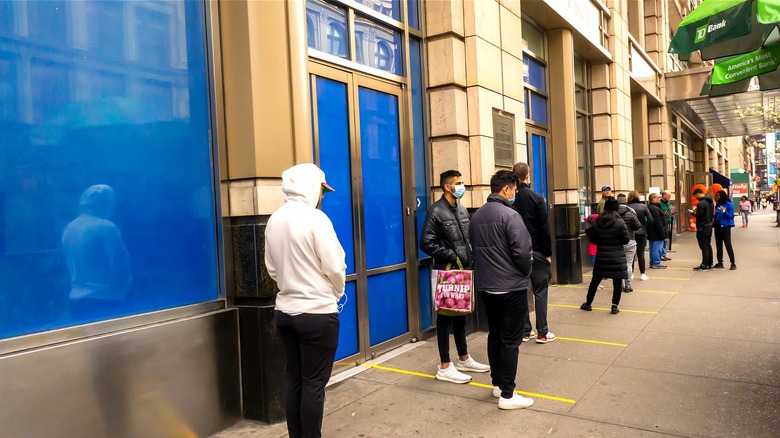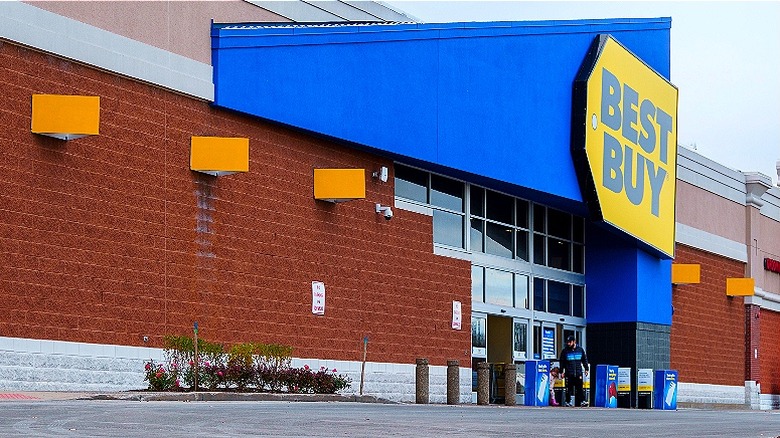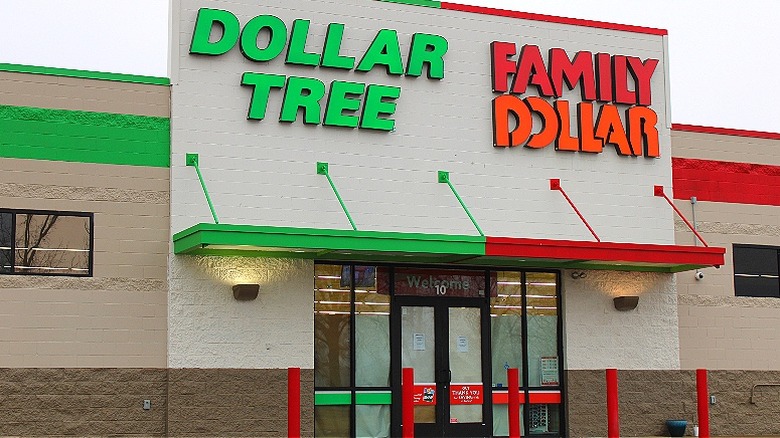The Largest Electronics Retailer In The US Is Closing More Stores
The post-pandemic economy has seen a LOT of store closures for the United States. From retail to restaurants, many large companies have struggled in the wake of supply chain issues and shifting consumer shopping habits. Perhaps one of the largest U.S. companies closing its stores is Best Buy. In a February 2024 earnings call, the company's chief financial officer, Matt Bilunas, said, "As our ongoing practice, we will continue to close existing traditional stores during our rigorous review of stores as their leases come up for renewal. In fiscal '24, we closed 24 stores. And in fiscal '25, we expect to close 10 to 15 stores." At the time of the earnings call, the company didn't announce the specific locations that would be closing.
Now, before you get too worried about the future of Best Buy, it's important to note that these store closures are part of a larger strategy aimed at creating new store formats to attract customers. Best Buy Chief Executive Officer Corie Barry explained, "First, we will open small locations in a couple outstate markets where we have no prior physical presence and our omnichannel sales penetration is low to measure our ability to capture untapped share."
According to Barry, "We will test our ability to close a large-format store and open a small-format store nearby, thereby maximizing physical store retention through convenience." Best Buy currently (as of September 2024) boasts 1,053 stores across the country, but some are due to close by the end of 2024 or in the first half of 2025.
Which stores are next?
While Best Buy has yet to formally announce all of the locations it'll be closing, some have already happened or have been announced. For instance, shortly after its earnings call in February, Best Buy closed its Apple Valley, Minnesota; and Wooster, Ohio, locations. It was also announced that the Best Buy in Gaithersburg, Maryland, is slated to close at the end of October of 2024 (although there are two other Best Buy locations in the same area that will remain open). As for the 10-15 stores that Best Buy plans to close in 2025, there has been no confirmation.
It's also worth mentioning that Best Buy announced it would be remodeling its remaining stores, even creating flagship locations in order to attract more customers. Said CEO Corie Barry, "And so the goal here is not that every single store is going to look like an experience store. The goal though is that every single one has a bit of a refreshed look and feel, has more of those vendor partnership opportunities and has a better ability for our associates to merchandise in a way that makes everything feel kind of full and exciting."
This means that regions that might experience a Best Buy closure could expect either smaller store concepts to open in their place, or could have a larger experience-style store in a neighboring city or area. In this way, Best Buy is trying its best to ensure customer access to its stores while changing what that store might look like.
Other store closures in the US
Best Buy isn't alone in closing its stores. In fact, a concerning trend of post-pandemic bankruptcies and closures has been affecting large businesses across the U.S. retail and restaurant industries (the restaurant industry, in particular, is really struggling in 2024). Macy's has already announced it plans to close 150 locations (that the company deemed "unproductive") across the country by 2026. Also, since filing for bankruptcy in October 2023, Rite Aid has closed more than 550 locations. Family Dollar, meanwhile, announced the closure of 600 stores in 2024, with another 370 due to close as their location leases expire. In fact, per an August 2024 Coresight Research report, the number of year-to-date store closures (4,548) has actually outpaced the number of announced store openings (4,426).
As Svec Gielchinsky, a bankruptcy attorney and partner at DGIM Law, told commercial real estate news outlet CoStar News, the reason for these closures is rooted in a combination of slowing sales growth, higher costs, and fewer accommodating debt markets. Gielchinsky went on to say that many of these retailers were probably facing financial problems before the pandemic, but experienced a kind of lifeline during the pandemic, but that this only delayed the financial consequences of poor business decisions.
"Once sales normalized, once operations normalized, their poor merchandising, poor location strategies, what have you, came back to roost. And we're now paying the piper that we should have and would have probably paid in 2021 [...]," Gielchinsky said.


